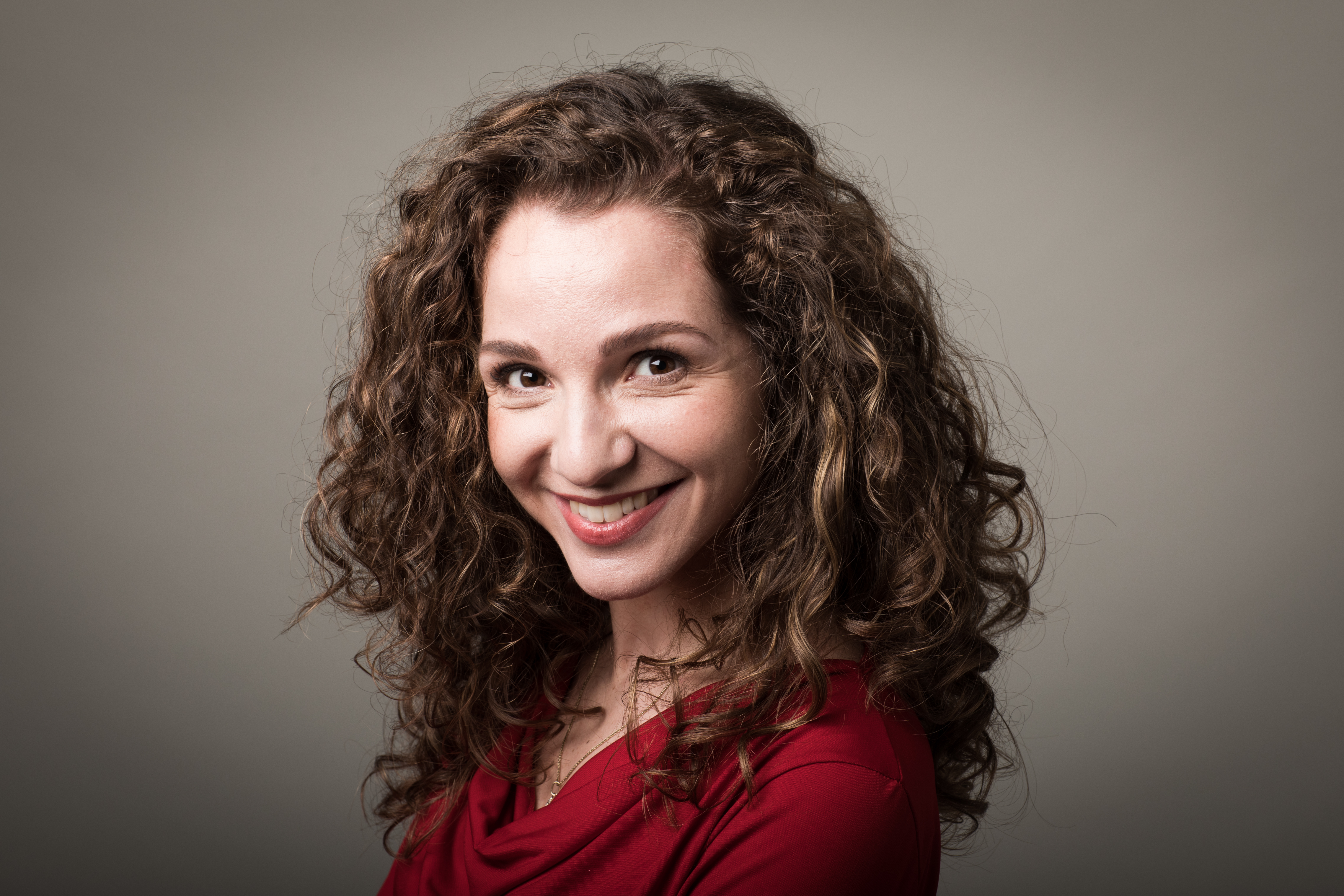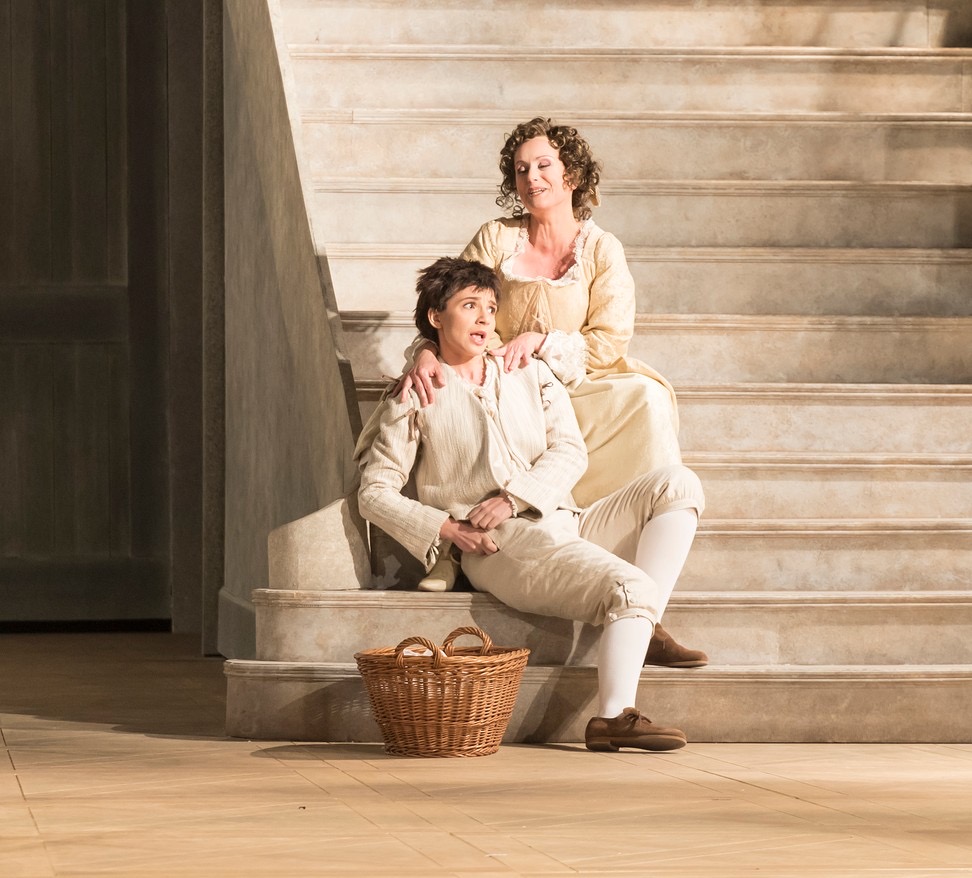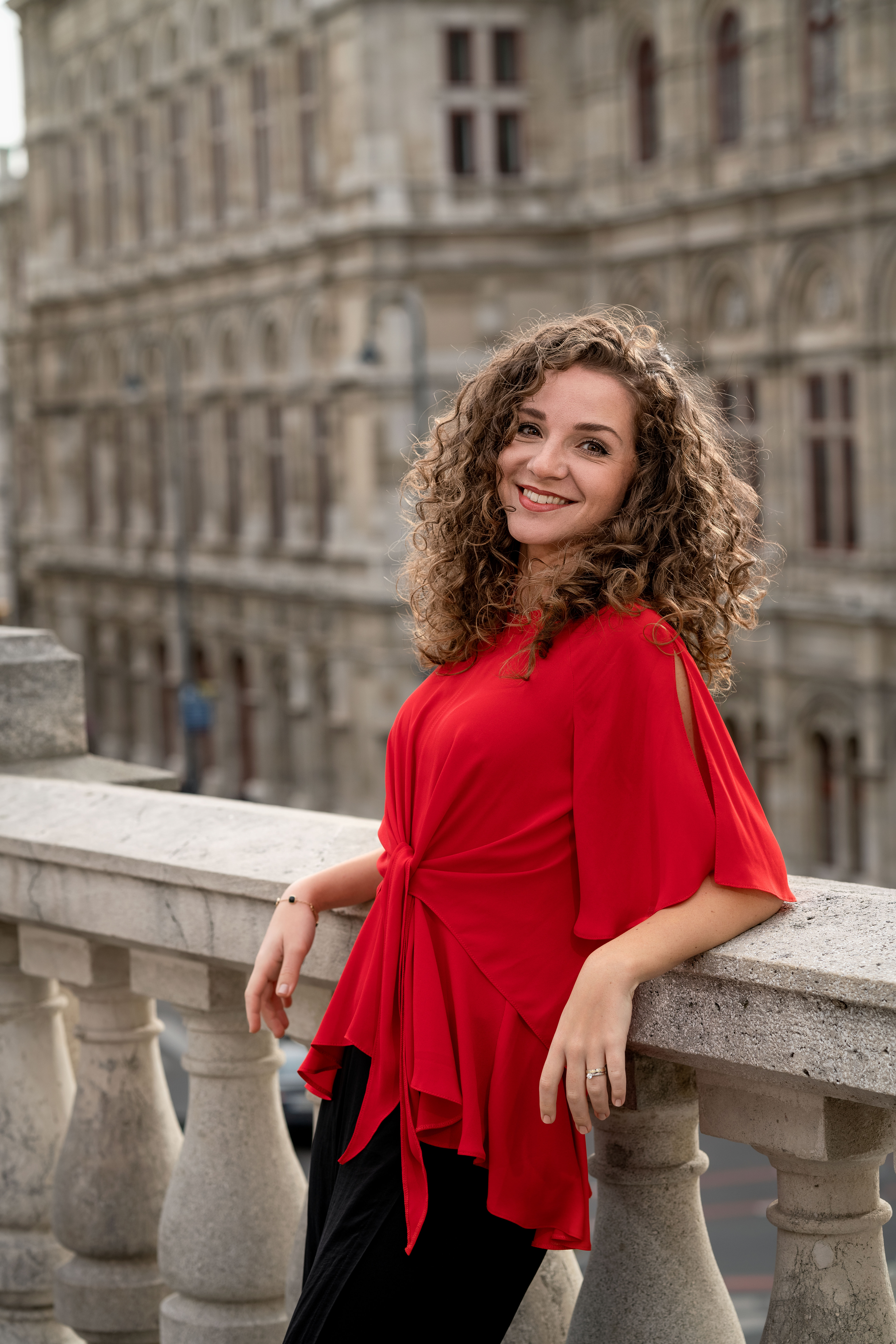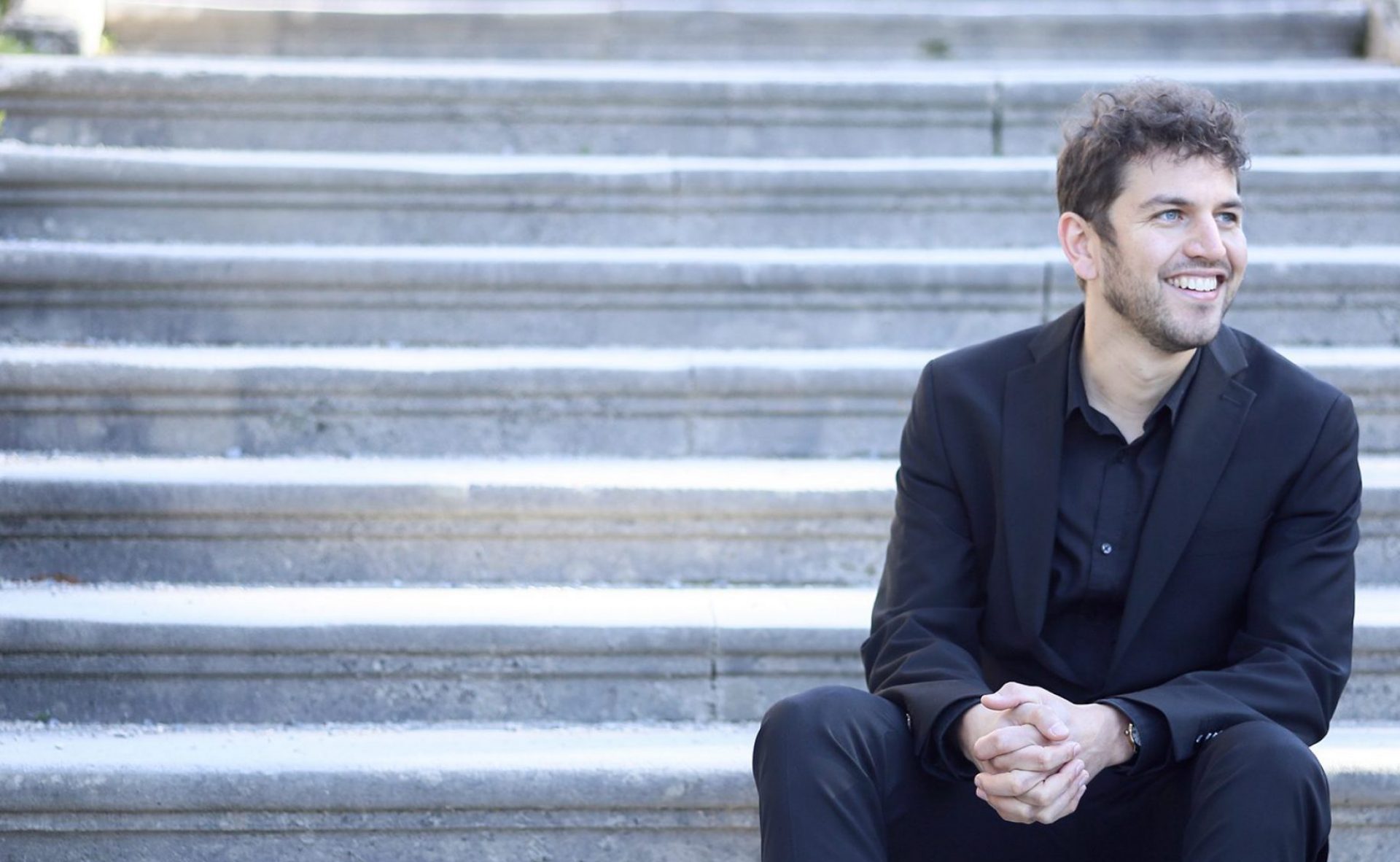Bulgarian Mezzo Soprano Svetlina Stoyanova is a soloist at the Vienna State Opera (Wiener Staatsoper), where she has appeared in roles such as Rosina (Il barbiere di Siviglia), Cherubino (Le nozze di Figaro), Roßweisße (Die Walküre), Tisbe (La Cenerentola), and Lola (Cavalleria Rusticana).
In 2017, while still studying at the Royal Conservatoire of Scotland, Svetlina won 1st prize in the Neue Stimmen International Singing Competition. Following her success, she was invited to sing at many opera houses, including the Opéra de Nice Côte d’Azur and at the Bregenz Festival. After the 2019-2020 season she is leaving the Vienna State Opera to go freelance.
For the German version of this interview, please click here.

On stage I want to help people by taking them on a journey and making them feel that emotion with me. For me the most important thing is to be sincere and be in the character.
Please describe your hot toddy in three words!
Strong, spicy and heart-warming.
If you could have a meal with someone famous in history, who would it be?
The first person that comes to mind is Maria Callas. I’d be interested to know how down to earth she was. Or maybe someone like Juri Gagarin, Neil Armstrong or Neil deGrasse Tyson! I could talk about the cosmos with them for days, it would be so interesting!
Do you have a favourite opera?
At the moment, my new favourite opera to sing is Rossini’s L’Italiana in Algeri. I love the character of Isabella and I love the music. The fun never stops, and I think people enjoy it a lot because of that.
To listen to, I love any Massenet, and I’ve been enjoying listening to Wagner recently. It is heavier but I really enjoyed it. My first Wagner was Die Walküre. When you hear the theme it fills you with so much energy!
Favourite composer?
I’m going to sing some of Berg’s Sieben frühe Lieder very soon, and I must say these songs have got right deep into my soul – I love singing them. Also Mahler, Tchaikovsky, Rossini and Handel. I gave you a lot there! I always go back to Baroque though.
It seems like my favourite composer is always the one I am working on in the moment, and no matter how many times I have sung something, I always try to find something new, something to keep it alive and interesting.

What have you learnt about singing and performing since you’ve been at the Vienna Staatsoper?
I came here as an almost empty sponge, and my whole idea was to soak everything up as much as I could. I met so many of the big stars. They’re all very normal people. I recently messaged Erwin Schrott to ask him about a farm where he orders fruits and vegetables. I met Joyce Di Donato, who’s been an idol of mine for a long time and was one of the most friendly people I have ever met – at the time I was singing Cherubino and she was telling me about her first Cherubino!
I sang Cavalleria Rusticana with Elīna Garanča and it was a very special performance, because when she was my age, she sang her first Lola in Vienna. She was now singing her very first Santuzza and I was singing my first Lola, so it was quite a special moment for her, and it turned out to be very special for me as well. I have sung a few times with Juan Diego Florez, lastly in Manon. and I really hope that one day I get to sing some Rossini with him!
I didn’t change who I was – I’ve always been quite an open person, and I think people appreciated this. I have learnt a lot more about style, about composers, because when you come from a conservatoire, you don’t have much experience; it’s as simple as that. Yes, you know in theory and some practice but it is so different, especially when you are in such a busy house like the Vienna State Opera. Here we work with incredible coaches and directors who have so much experience. Life is an unending journey of learning as long as you are open to it!
I have also learnt about how the opera world works in terms of agents, how important the connections you make with conductors are, and how important it is to pick good roles for your voice and preserve your voice, keeping it healthy at all times.
What’s important to you when you’re performing?
I moved to Scotland to study psychology, and my desire was always to help people. On stage I want to help people by taking them on a journey and making them feel that emotion with me. For me the most important thing is to be sincere and be in the character, but also not to copy anybody else. Yes, I saw these big names and all these other incredible singers, but I don’t want to copy what they do, because everybody is so different, and I think it is very important to bring yourself into the character.
Have you ever felt pressured working at such a famous opera house?
Of course you feel nervous and pressured: particularly pressured for time to learn roles, because I came here knowing two roles and now I know over 30 after a season and a half. It’s constantly ‘go, go, go!’ You sing a lot and you cover a lot, so it’s non-stop. This is pressure, but if you can handle it, it is incredible experience. If I do ever have problems for any reason, then I can always go and speak to the people in the management and they understand if my points are valid. I always find a solution in some way.
For example, my first Rosina in the house was the beginning of this season. One of the first things I sing is Una voce poco fa. In this production, I am sitting on a chair and the wall comes up in the introduction, so I knew how fast my heart was going to be before I sang due to the nerves and adrenaline.
To prepare myself for this, before a coaching I would run up the staircase of the theatre, so that my heart was beating faster, and I’d go into the coaching and sing the aria. This worked! I trained myself how to calm my heart down very quickly right before I started to sing.
Have you noticed anything specifically about working in Austria compared to other countries?
I’ve worked in France, Germany, Spain, and generally things are more or less similar. Perhaps, everything there was a bit calmer but I am in fest contract in Vienna and I have only done revivals here. Coming back to my example of Il barbiere di Siviglia – we had five days to prepare. Day 1 was the musical rehearsal: just the pianist, conductor and us. Then we had three more days of rehearsals in a studio, the fifth day we ran through the opera, and on the sixth day we were on stage.
We didn’t get rehearsals with the orchestra, or rehearsals on the stage, so I first saw the stage two hours before the performance, and the orchestra when I started the performance. This is probably a way in which this house is different compared to any other. As far as I know, Vienna is the only house where you don’t get rehearsals on stage or with the orchestra. For my 2 seasons, I have had 2 Sitzprobe1, 1 ‘Stage and Piano’ rehearsal and 1 ‘Stage and Orchestra’ rehearsal.

I came [to Vienna] as an almost empty sponge, and my whole idea was to soak everything up as much as I could. Life is an unending journey of learning as long as you are open to it!
How do you learn the roles so quickly?
I don’t know, you study like a crazy person, and you just learn them! It’s a state of mind I think, it’s organizing your time right, and your energy right. They know who needs more coachings and who doesn’t, so they adapt that. If you ask for a coaching, they will give it to you.
How have you found being in the Fest system?
For me these two years of Fest were incredible and I needed them not just to gain repertoire, but to learn about this world, to meet people and learn how everything is. I think that going freelance straight away would have been risky when I didn’t know how the world works and didn’t have connections. So I found for me that two years was the perfect amount of time. From here on I’m going freelance, and it’s great for me to move on.
How do you feel about going freelance now?
It’s very scary and I think now it’s even scarier because of the Coronavirus. I feel so lucky that I will be singing my debut of Angelina with the New Generation Festival in Florence and because it is open air, the production is going ahead. I am also hopeful that my plans for the autumn with concerts in Tokyo will also go ahead as planned.
But I know the first year and a half can generally be quite difficult. I am aware of this, but I have also seen how in the past two seasons I have had a lot of offers which I could not take, because being Fest here means that you are constantly busy in the house and you very rarely have time to Guest. There are so many operas, and everybody is working the whole time.
Of course there are never enough connections you can have as a young performer, and if you don’t know people it’s risky. I cannot stress enough how important it is to have a good agent that you can trust!
We met while studying on the Opera Course at the Royal Conservatoire of Scotland in Glasgow. How do you feel about your time studying in Scotland, and is there anything you feel was missing from what you learnt there?
The opera course at the Royal Conservatoire of Scotland was really great, and included a lot. I first moved to Scotland to study psychology at the University of Glasgow, but thanks to the persuasion and huge believe in me by Professor Christopher Underwood, I transferred to studying at the Royal Conservatoire of Scotland, which is one of the reasons I was in Scotland for so long.
I had never studied singing before that and I needed the time. I also stayed for my teacher, Clare Shearer. I keep talking to her now and every once in a while I still sing for her – there’s always more to learn from your teachers, when you know you’ve got a good one!
I strongly believe they need to open up to the rest of the world and show what else is there. I understand they want to keep things in the UK, but it’s an international conservatoire and music is an international job. I don’t know what’s going to happen now with Brexit, but still, people need to know that there’s lots of opera studios out there. They should invite more people from these places to give talks and career advice, like how to find an agent for example. No one ever told us that.
One of the many things the director of Vienna State Opera, and now of La Scala Dominique Meyer had helped me with was to find a good agency. My agents receive videos with emails all the time, so what you need to do is to know how to find these agents.

My aim was if I got through the first round [of the Neue Stimme competition], maybe somebody would hear me or like me and I would create some connections. Until they said my name at the end, I would not have thought that I had won! The fact that I was in the final already was incredible win for me and I was enjoying singing with the orchestra.
How was the Neue Stimmen competition for you and would you recommend the competition route to other singers?
Absolutely! If you have the nerves, go and do competitions! Don’t go with the thought of “I must win it!’’. Go with the thought of wanting to make friends, to perform, and gain experience. The first thing I did when I went to the competition was make friends. I found out as much information as I could from the other people there. My aim was if I got through the first round, maybe somebody would hear me or like me and I would create some connections.
Until they said my name at the end, I would not have thought that I had won! The fact that I was in the final already was incredible win for me and I was enjoying singing with the orchestra. Until then I’d barely sung with the orchestra and it was great to have the support you get from them.
I would also say, go to competitions which you know are established, and look at the jury members. If you see Dominique Meyer in a competition, that means it’s a good competition. I would definitely recommend the Neue Stimmen competition because they really do create careers, and they are also so nice and so helpful with every single thing. They look after everybody who is there, and they’re very fair.
It must have been an amazing moment when you won. Were there any subsequent challenges as a result?
I really couldn’t believe it at first that I had won this huge competition! The time was nuts for me, and it was also just before my wedding. We got married on a Friday and on the following Wednesday I was travelling to Switzerland for auditions.
Many intendants who had heard me in the competition wanted to hear me singing in a their opera house. I used money from winning the competition to help pay for these auditions. That’s often an issue – when you can get auditions, being able to travel there and being able to pay for all the trips and hotels is difficult.
I would advise singers not to travel the morning of your audition. I did this quite a few times and it’s not clever because you don’t show your best. You’re just tired, even if you don’t feel tired, it’s just not the best case scenario. You should try and get a good night’s sleep and prepare properly and hydrate yourself. This could be a future job.
In auditions they can forget you very easily if they don’t have anything planned for you. Even if you make a good impression, it’s up to your agency to then remind them who you are. There’s so many people, and I’ve heard before that people remember a bad audition, but not a good audition. It’s so sad!
Do you have any more general advice for anyone studying singing?
Learn repertoire, so that you don’t have to learn thirty roles in a season and a half! Of course the danger comes if you then start singing it too much, because while you’re still studying, your technique is not necessarily 100% and your voice always changes and always improves. If you know where your voice is and where it’s going, you can study the role without singing it.
Do your translations: learn to speak the text, because that will be so helpful. Maybe get the music in your head. But don’t oversing it, because having to re-learn something with a better technique is much harder than learning it from the start. I have arias for example, like Una Voce, which I have had to rework so much because I learnt it so long ago and it was with a very different technique, where maybe not everything was quite right.
Also sing songs! Every teacher says that to us, but it’s so important to have a lot of song repertoire ready, because very often people can ask you to come and sing a concert, and you need to have repertoire. At the Royal Conservatoire of Scotland, a fantastic thing was that we had so many song classes. I now understand why we didn’t sing so many arias, but we sang more songs.
Pick your audition arias very carefully and be sure they are good for your voice. If you have a piece by Mozart in your audition list they’ll most probably ask for it, as Mozart shows correct technique, and it is probably one of the hardest composers to sing! Be sure that you can sing all the arias in your audition repertoire one after another. Also show diversity in your choices, and always start with an aria which you are absolutely secure with.

Today you also have to be a very good actor, because the audience needs to believe you; it really is the same as theatre. If they don’t believe you, they’ll get bored, because they have so much stimulation on TV all the time. I was looking at Plácido Domingo dying on stage, and it was heartbreaking – it was as if it was true.
What do you look for in a director?
I’m looking for flexibility in the sense that the director can see me and add my personality to the role. It’s hard here when we’re doing revivals because the directors are teaching the moves from how the premiere was, and how it was for the person that sang that time, so I often need a bit of flexibility from the director. If it’s a new production, you need a good balance of both the director allowing you to express yourself, and giving you direction.
What do you need in a conductor?
It’s to be able to trust that they will always catch you. On stage, maybe the tempi are not quite the same as what you rehearsed. The conductor can also be a little nervous, but the singer will definitely be, and it’s important for the conductor to feel where your energy is going and where your voice is going, so that they can help you. It’s also very important to be clear. I
It’s difficult here because it’s the Vienna Philharmonic, and they know the repertoire so well, so it’s very hard to be a conductor for this orchestra. I can tell, and you need to be very strong to control this orchestra, because they can play without a conductor. There was even a situation when they did Parsifal here at Easter some years ago. Halfway through the conductor injured his back and he said he just couldn’t conduct anymore. He was lying on the floor of his dressing room. The Director Dominic Meyer stepped in and said, ‘ok, what do we do now?’ The pianist who’d been working with the singers was there, and he asked him, ‘do you have any conducting experience?’ He had a little, and so he spoke to the Leader of the orchestra, who said, as long as he can give us cues for when we should be there for the singers, we know the rest. And it happened, and they did it!
What will opera look like in 100 years time? Does it have to change in order to stay relevant?
Well, some of the productions we do are so old that they are already not so relevant to today. Some of the productions are culturally inappropriate, but I think people need to realise that a lot of operas were written a long time ago and they were never done with bad intentions. The music is beautiful and wonderful. With some new compositions and productions, it can all start becoming a little too abstract, too clever, and still inappropriate musically or acting-wise.
Today you also have to be a very good actor, because the audience needs to believe you; it really is the same as theatre. If they don’t believe you, they’ll get bored, because they have so much stimulation on TV all the time. I was looking at Plácido Domingo dying on stage, and it was heartbreaking – it was as if it was true. In this way, opera is already very different from what it was like even not that long ago. And this is what differentiates a good from a great performance – not only the singing but also the acting.
Many operatic works are a part of history and we can learn from them. Of course in a way you should try and find something new, but you can also add something new by discovering things from the past, things that have already been created. I think that you shouldn’t try and change opera and make it into a different type of art.
Classical music is so good for the brain – there are so many studies that show this, particularly for children. We have so many children’s operas here in Vienna and they’re always full, and the children love them. So they’re really introducing the children to opera from a very young age and involving them. In the main theatre there are actually a lot of young people too.
In Bulgaria it was not possible to learn instruments at school like in the UK – there was not even a school choir for example. Somebody was recently telling me how she did an experiment, where while her baby was still in the womb, she played the same melody every day on the piano. When the baby was born, she played that melody, and the baby’s eyes lit up because he recognized it! So I think that’s the way to preserve this art, because it’s truly beautiful and it can take you somewhere else.
Thank you to Svetlina for taking the time out of her busy schedule to talk to us this week! You can find out more about Svetlina at her website here.
Notes and Links
- A Sitzprobe (literally ‘seated rehearsal’) is the first rehearsal that the singers get together with the orchestra. They do not act out any of the staging, which has usually already been completed, and focus solely on the music and being together with the orchestra for the first time.
- You can learn more about the Vienna State Opera (Wiener Staatsoper), through their website here.
- The Neue Stimmen singing competition takes place every two years and provides support for young opera singers. You can learn more about them at their website here.
- The Royal Conservatoire of Scotland is Scotland’s national conservatoire for music, drama and much more, and is based in Glasgow.
